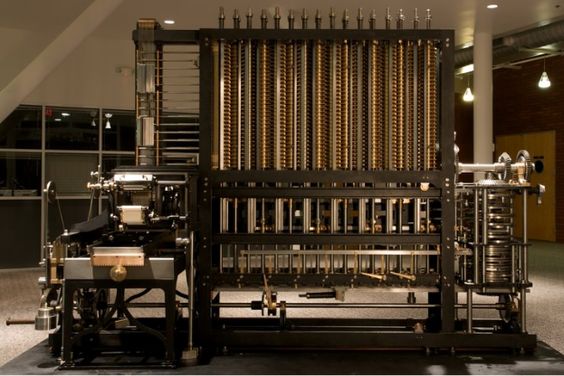- Like
- SHARE
- Digg
- Del
- Tumblr
- VKontakte
- Flattr
- Buffer
- Love This
- Save
- Odnoklassniki
- Meneame
- Blogger
- Amazon
- Yahoo Mail
- Gmail
- AOL
- Newsvine
- HackerNews
- Evernote
- MySpace
- Mail.ru
- Viadeo
- Line
- Comments
- Yummly
- SMS
- Viber
- Telegram
- JOIN
- Skype
- Facebook Messenger
- Kakao
- LiveJournal
- Yammer
- Edgar
- Fintel
- Mix
- Instapaper
- Copy Link
The First Mechanical Computer Is Born
 The first mechanical computer was invented by a mathematics professor in Cambridge England named Charles Babbage. Charles is even considered by many people world wide to be the father of the modern day computer because of his inventions of the mechanical computing engine.
The first mechanical computer was invented by a mathematics professor in Cambridge England named Charles Babbage. Charles is even considered by many people world wide to be the father of the modern day computer because of his inventions of the mechanical computing engine.
In 1812 Charles Babbage conceived what he called The Difference Engine. This solved polynomial equations by the method of differences. Ten years later in 1822 Charles Babbage built a small working model of his Difference Engine for demonstrations.
One year later in 1823 Babbage started to build a full scale model after being financially backed by the British government. This device was going to be steam powered and fully automatic, in fact it was even meant to print the results.
Charles Babbage continued to work on his Difference Engine for a decade until he lost interest in it in 1833 for his interest was growing with an idea for something even better. He described his new idea as a general purpose, program controlled and fully automatic mechanical digital computer. He called this the Analytical Engine.
What is the Analytical Engine?
 The Analytical Engine is regarded as the first real predecessor to a modern computer because it had all the elements of what is considered a computer today including:
The Analytical Engine is regarded as the first real predecessor to a modern computer because it had all the elements of what is considered a computer today including:
- A Processor – The processor engine consisted of hundreds of axles and thousands of gears approximately 10 feet tall.
- A Control Unit – Slats and studs were used to control the processor.
- Storage – A unit that contained additional axles and various gears holding 1,000 50 digit numbers were used for storage.
- An Input Device – A form of punched cards supplied input.
- An Output Device – Plates created to fit in a printing press.
Unfortunately this potential first computer was never actually completed because of problems with machining all the precision gears and various mechanisms. The tools of the time were simply not good enough for its complexity.
Of course Charles Babbage’s invention of the amazing mechanical computing engine is still considered by many around the world to be the birth of the modern day computer.
Way to go Charles!
See also:

